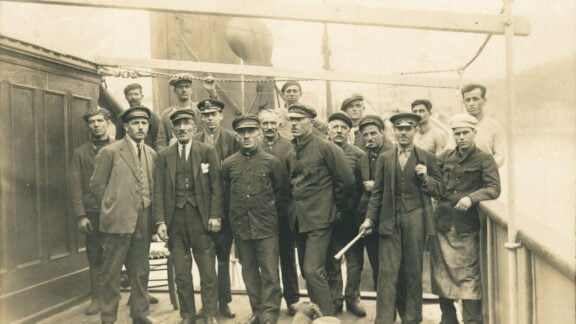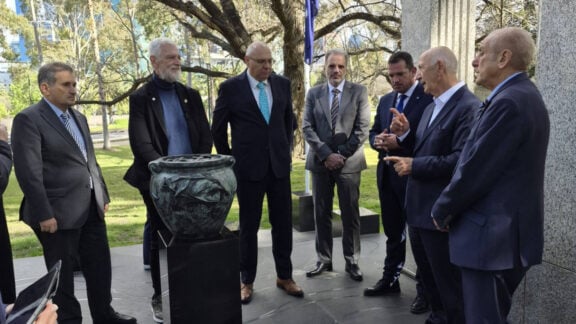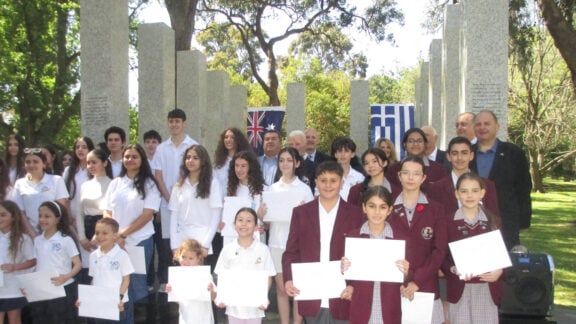When Cypriots are frustrated by a difficult situation, they often say “it has become like the Cyprus problem!”. Such exclamations are typical of the cynical way Cypriots greet any new peace effort to resolve the long-standing ‘Cyprus problem’ and bring about reunification. With the election of a new Turkish Cypriot leader, Mustafa Akinci (undoubtedly one of the most conciliatory political figures in Cyprus), in discussions with his Greek Cypriot counterpart Nicos Anastasiades, who supported the 2004 Annan Plan, one has to wonder whether this, indeed, may be the last chance of reunifying the island – at least on its bicommunal-bizonal federated basis. Predictably, every new initiative reminds us: Why, despite 40 years of endless negotiations and countless proposals, has the Cyprus conflict not been resolved?
“As the Greek crisis has recently revealed, any successful remedy to Cyprus’ current woes needs to be complemented with an optimistic narrative…”
Part of the answer may be found in the limitation of traditional diplomacy. An assessment of the political psychology of the Cyprus talks reveals that since the acceptance of a bicommunal/bizonal federation, negotiations have followed a repetitious pattern where disagreements on substantial issues saw both sides eventually retreating to the comfort offered by their entrenched positions.
As talks progressed they inevitably became more complicated, with the introduction of greater detail and new points of disputation. In addition, talks were often hampered by different interpretations to what had previously been agreed. Further hindering the process were the different motives, priorities, preferences, and objectives of the two sides such as: maintaining/changing the status quo, unification/separatism, federation/confederation, unitarism/decentralisation. So, fundamentally, disagreement over federal reunification (or unitary devolution) revolved around its form, structure, and power-sharing. Underlying these differences is the lingering climate of mistrust between the two sides and their sense of insecurity, which means perpetuation of the status quo.
The conclusion from any assessment of the Cyprus talks is that in their current form, and in isolation of other initiatives, they cannot overcome the political and psychological obstacles that prevent a negotiated settlement.
Their failure stems from their incapacity to address a number of problems; the main one being that the negotiations have developed a logic and timing of their own, which does not necessarily correspond to the psychology of the political situation it seeks to remedy.
In addition, the common interests shared by the two communities and the mutual benefits that could result from a negotiated settlement have not been sufficiently elaborated or emphasised. Conflicts are rarely one-dimensional or static. Over time they develop their own language, culture and psychology. As with most conflicts, to break the pathology of the status quo in Cyprus requires new approaches capable of introducing and communicating new ideas, opportunities and parties that links into the peace process. The problem with concentrating exclusively on official diplomacy, striving for a political settlement while neglecting the need to change the realities on the ground, was borne out during the ill-fated 2004 referendum and the 2008-2012 ‘Cypriot-owned, Cypriot-led’ negotiations.
Ultimately, the challenge confronting Cyprus, its communities and its people lies in their capacity and will to transcend the complacency offered by the current status quo and come up with a political arrangement that overcomes their historical insecurities. But this is not enough. As the Greek crisis has recently revealed, any successful remedy to Cyprus’ current woes needs to be complemented with an optimistic narrative, one that affords Cypriots confidence, security, a sense of justice and a belief in the future. As Cypriots need to overcome their past and create their own destiny, there is always the danger that if they stall for too long, such passivity will, by osmosis and over time, ensconce a permanent division and the anathema of partition.
Dr Michális S. Michael is an honorary senior research fellow at La Trobe University, director of the Centre for Dialogue, and author of Resolving the Cyprus Conflict: Negotiating History (Palgrave Macmillan).








